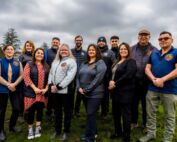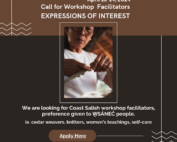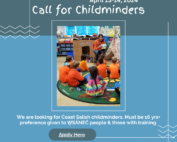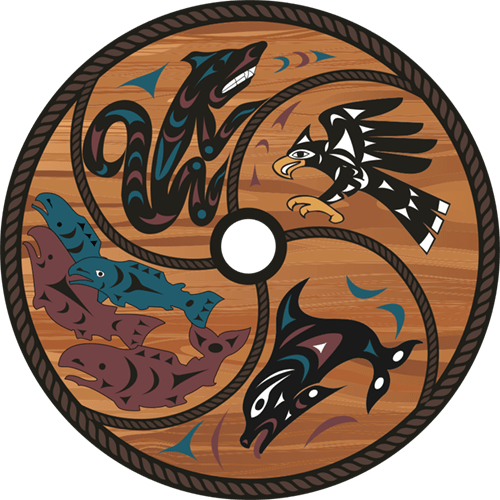Meet Eryn Rogers, the new Policy and Negotiation Analyst for the W̱SÁNEĆ Leadership Council
Read the transcript below to learn more about Eryn and the work she’ll be doing to change legislation and policies to better reflect and create space for Indigenous rights and self-determination.
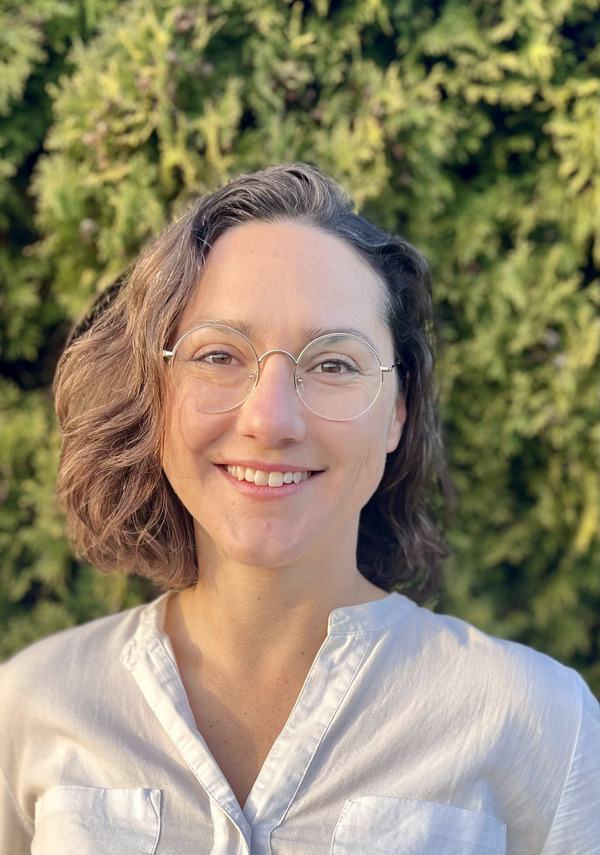
Interviewer: Can you tell me a bit about who you are and where you’re from?
ÍY SȻÁĆEL, my name is Eryn Rogers. I am of English, Scottish and Welsh Heritage, but was born and raised in Aotearoa/New Zealand in the rohe (traditional territories) of Ngāti Whātua Ōrākei, Ngāi Tai, Ngāti Tamaoho, Te Ahiwaru – Waiohua, Te Patukirikiri, Ngāti Pāoa, Te Ākitai Waiohua, Te Rūnanga o Ngāti Whātua, Ngāti Whanaunga, Te Kawerau a Maki, Ngāti Whātua o Kaipara, Ngāti Tamaterā, Ngāti Te Ata.
I moved to Canada in mid-2022 because of all the Treaty work going on and I am really looking forward to working for W̱SÁNEĆ peoples at these important Tables.
Interviewer: Can you share some of the background and experience you bring to this position?
For the last six years, in Aotearoa, I was working in Tiriti o Waitangi/Treaty of Waitangi settlement negotiations. Most recently, I was acting as the Negotiation and Settlement Manager for the Ngāti Maru Negotiations, and also on the Taranaki Maunga negotiations for the recognition of Taranaki Maunga (an ancestral mountain) as a ’legal personality’. The recognition of legal personality will also come with new co-governance and joint decision-making arrangements for the National Park located on the mountain.
Recognizing legal personality means that the Mountain will be recognized at law as having its own separate legal identity and, among other things, will be able to speak for themself in legal proceedings. In New Zealand, ’legal personalities’ are represented by a body made up of appointees from both Iwi (Indigenous groups) and the Crown who act as the “face and voice” of the ’legal person’. The appointees don’t represent their appointer’s interests, but rather must work together to represent the mountain ancestor in a way that respects and reflects Indigenous values and practices.
I also have experience working across a number of different negotiations on a range of redress mechanisms. These included financial, commercial and cultural redress as well as relationship redress and land return. My work often focused on natural resource management and establishing mechanisms to provide for greater involvement of Indigenous groups in the governance and management of important natural resources.
Before that, I studied Law and Pacific Studies at the University of Otago. I really enjoy legislative drafting and trying to figure out how to change the way that the Crown’s legislation and policies work so they can better reflect, and create space for, Indigenous rights and self-determination.
Interviewer: What kind of work you’ll be doing with the W̱SÁNEĆ Leadership Council?
I’m the Policy and Negotiation Analyst for the Leadership Council and will be picking up a number of different files with a focus on activities going on in the Salish Sea, the Gulf Islands National Park Reserve and the proposed National Marine Conservation Area Reserve. I’m also hoping to work on some land return opportunities and to support the work at the Recognition of Indigenous Rights and Self-Determination Table.
Interviewer: What kind of impact do you hope to have during your time with the WLC?
I’m hoping to bring a combination of ideas and technical skills to ensure that Douglas Treaty and W̱SÁNEĆ rights and titles can be fully realized. I want to help establish durable partnerships with neighboring First Nations, the Crown and other local stakeholders in a way that will benefit W̱SÁNEĆ peoples, restore respect for W̱SÁNEĆ knowledge and traditions, and provide flexibility for growth over time.
Interviewer: What do you like to do when you’re not at work?
When I’m not at work I like getting outdoors, hiking and cold water swimming. I love learning about the place where I live and am spending a lot of my time reading about the islands here and, more specifically, about W̱SÁNEĆ cultures, histories and laws. Community is also very important to me so I like to see friends and keep up my connections back home.
Interviewer: Is there anything else you’d like community members to know?
I’m hoping to learn as much as I can about W̱SÁNEĆ people and culture to make sure that I can serve your communities to the best of my abilities. I love meeting people and hearing stories and viewpoints, so if you see me around, please come and chat with me.


